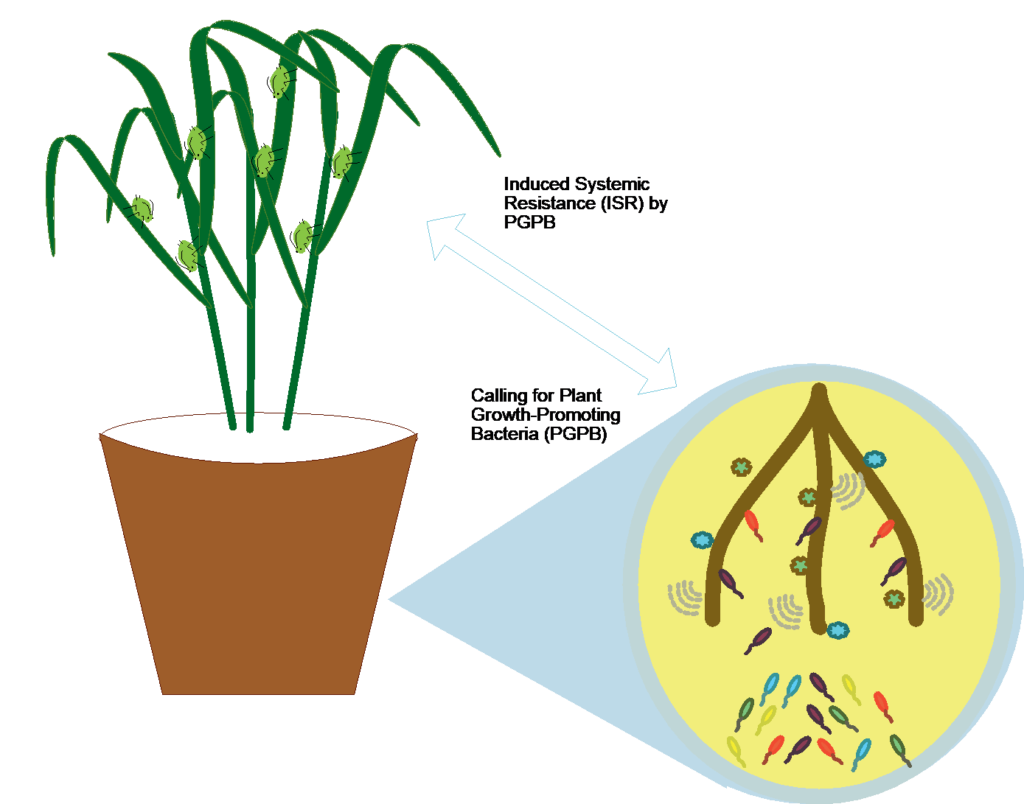Insects are responsible for more than 20% of yield losses in crops around the world. Finding ways to protect crops from pest damage requires understanding the interplay between biotic and abiotic factors that affect plant response to pest attacks. Growing evidence suggests that plant-microbe interactions in the rhizosphere are involved in the plant’s defence response to herbivory. Some microorganisms, known as “plant growth-promoting bacteria (PGPB)”, have been shown to improve plant health and promote resistance/tolerance to stressful conditions, but the mechanisms by which they help plants are not yet completely understood
The student will test the ability of the Pseudomonas isolates to increase nutrient acquisition (e.g., siderophore production, phosphate solubilization, nitrogen fixation) of plants. This project will contribute to the understanding of plant-microbe interactions that will be key for designing future agricultural systems sufficiently robust to protect crops from pests and promote plant growth, maintain healthy soils and provide balanced agroecosystems.
To apply
We encourage applications from students from all backgrounds. Please check you meet the eligibility criteria before completing the online data collection form; this form is a mandatory part of the application process, but contains ‘prefer not to say’ options for all questions asked.
Once you have completed the online data collection form you will receive an email with the application form and details of how to apply to the supervisor. The application form should be completed and emailed to the lead supervisor along with a reference from your personal tutor.
References
- Pieterse CMJ, Berendsen RL, de Jonge R, et al. Pseudomonas simiae WCS417: star track of a model beneficial rhizobacterium. Plant and Soil. 2021;461(1-2):245-263. doi:10.1007/s11104-020-04786-9
- Pourya M, Shakarami J, Mardani-Talaee M, Sadeghi A, Serrão JE. Induced resistance in wheat Triticum aestivum L. by chemical- and bio- fertilizers against English aphid Sitobion avenae (Fabricius) (Hemiptera: Aphididae) in greenhouse. International Journal of Tropical Insect Science. 2020;40:1043-1052. doi:10.1007/s42690-020-00164-1/Published

